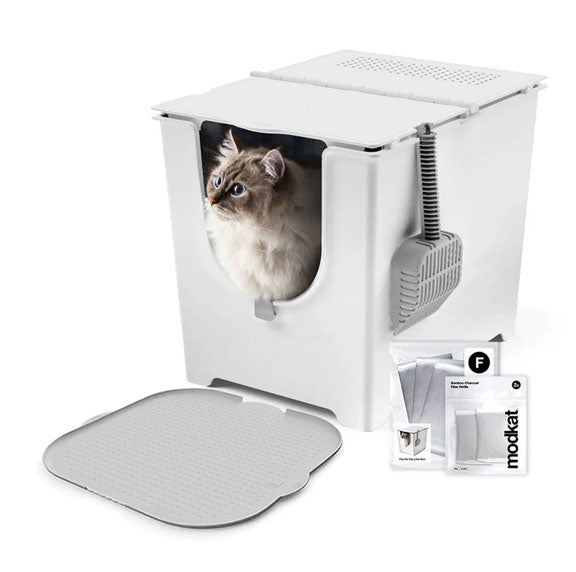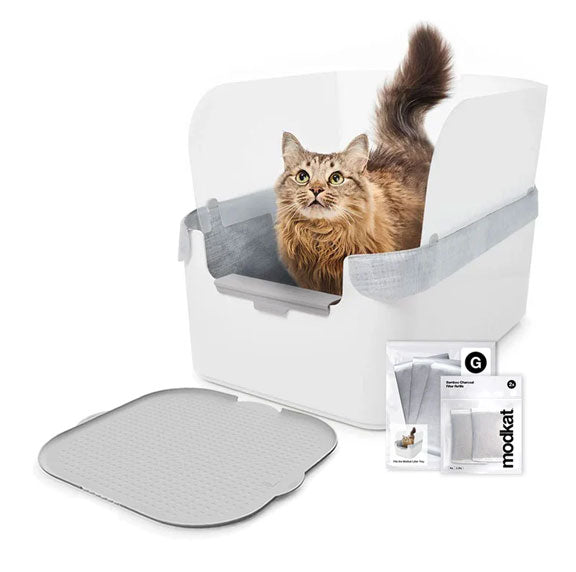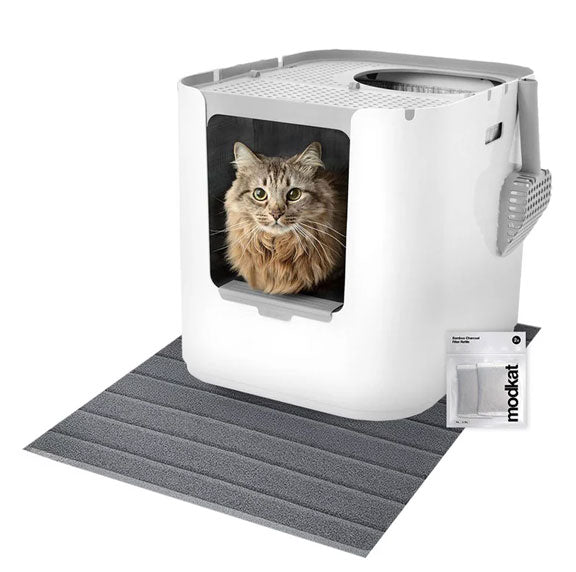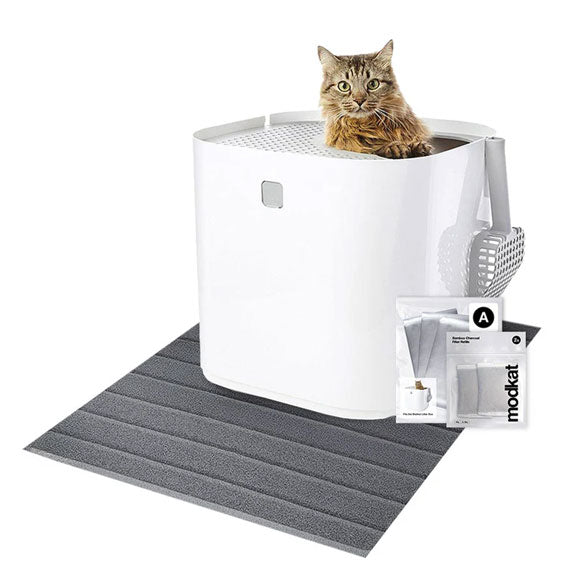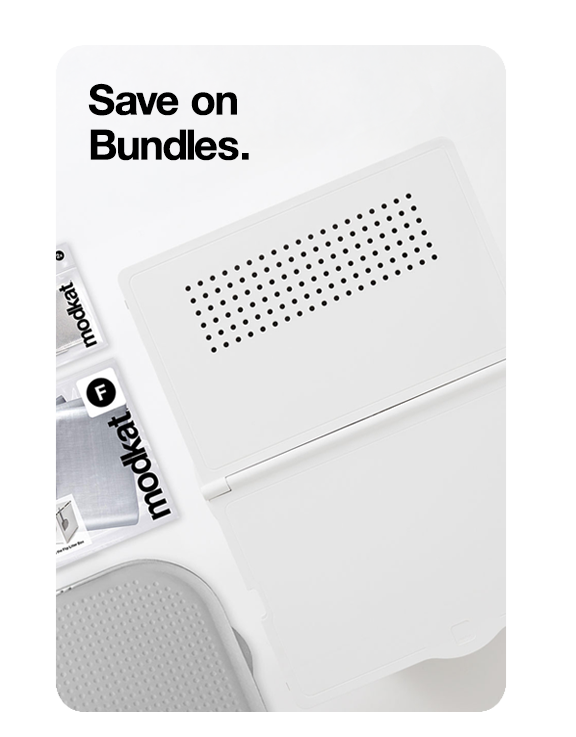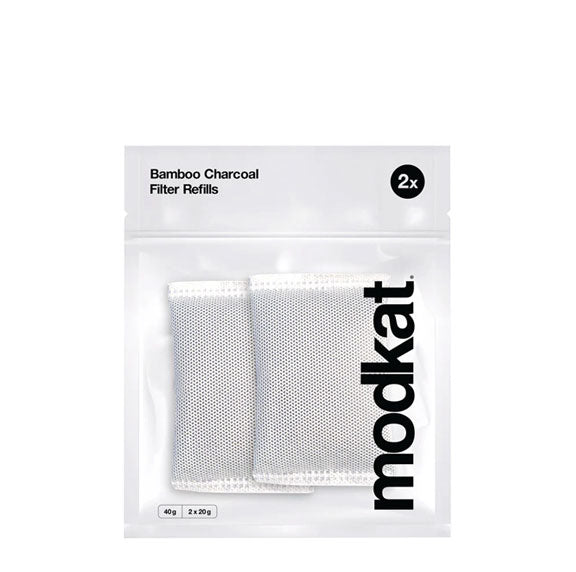Litter Boxes
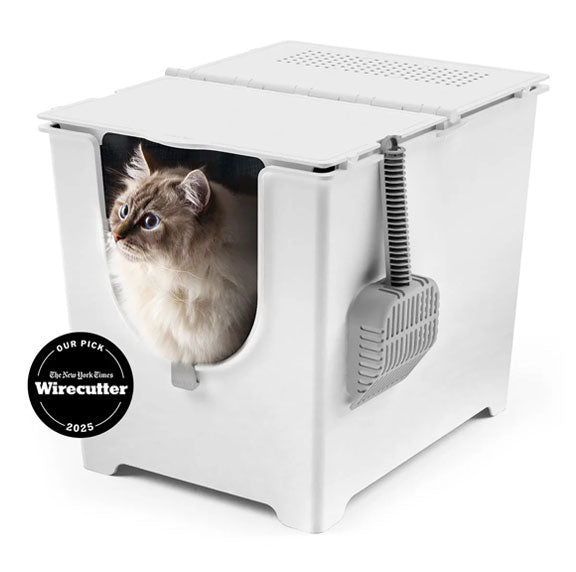
Modkat Flip
Front-Entry Litter Box
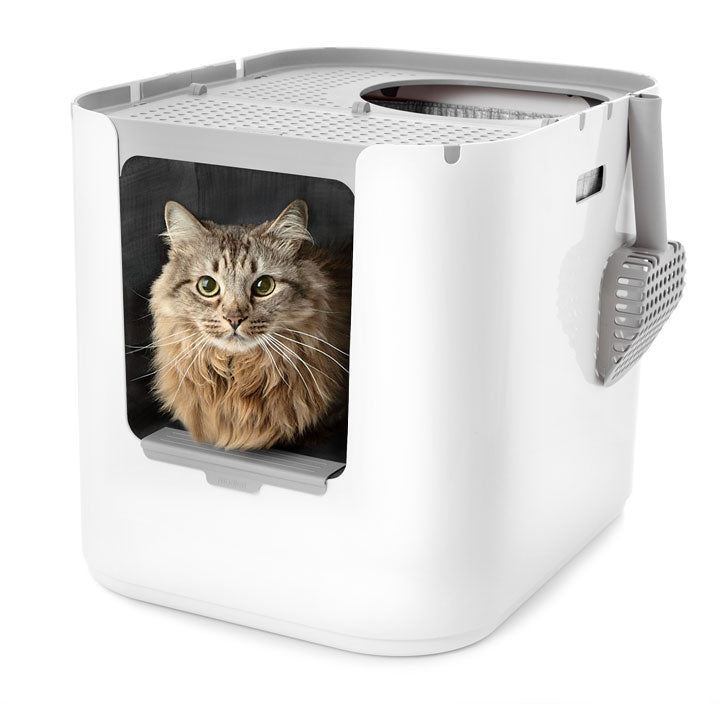
Modkat XL
Front/Top-Entry Litter Box
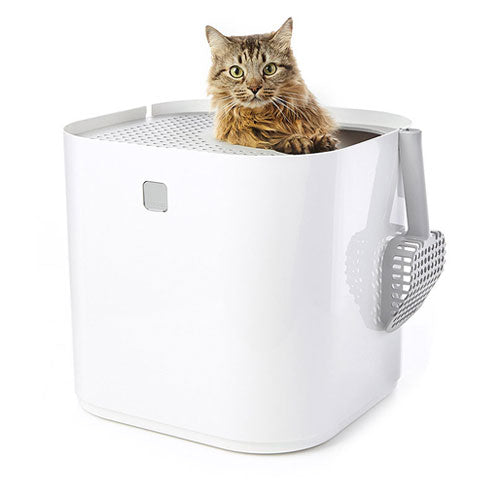
Modkat
Top-Entry Litter Box
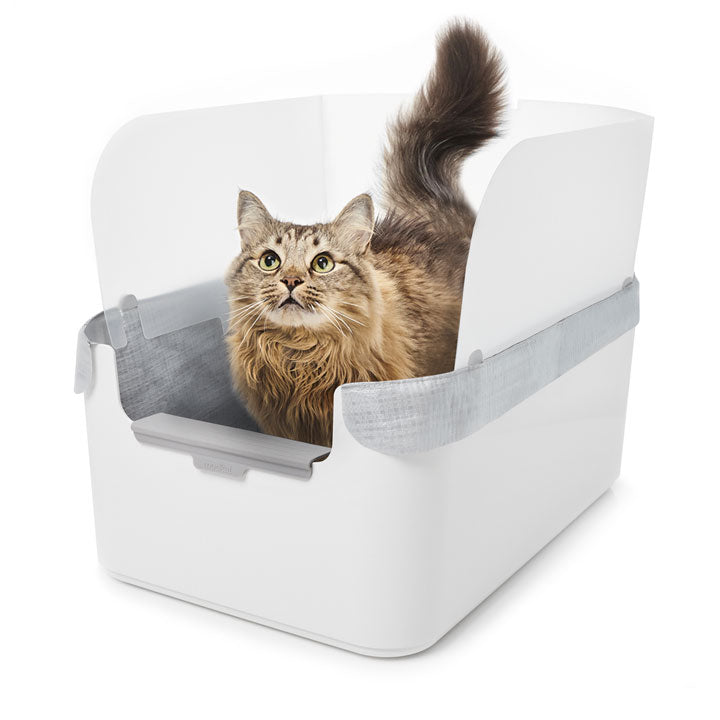
Modkat Tray
Open Litter Box
Bundles
Essentials
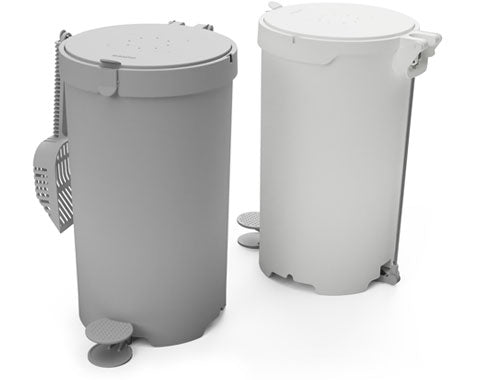
Litter Keeper
Two colors
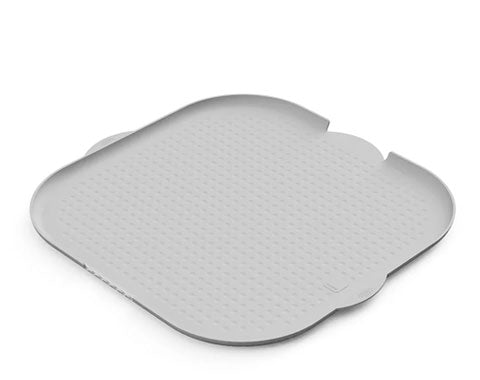
Litter Mats
Multiple styles, colors & sizes
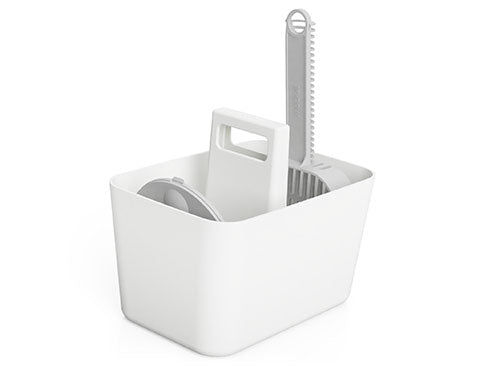
Tidy-Up Kit
Scoop holder & dustpan

Lounge + Play
Scratchers & toys
Refills
Add description, images, menus and links to your mega menu
A column with no settings can be used as a spacer
Link to your collections, sales and even external links
Add up to five columns
Add description, images, menus and links to your mega menu
A column with no settings can be used as a spacer
Link to your collections, sales and even external links
Add up to five columns
How to stop cat meowing.
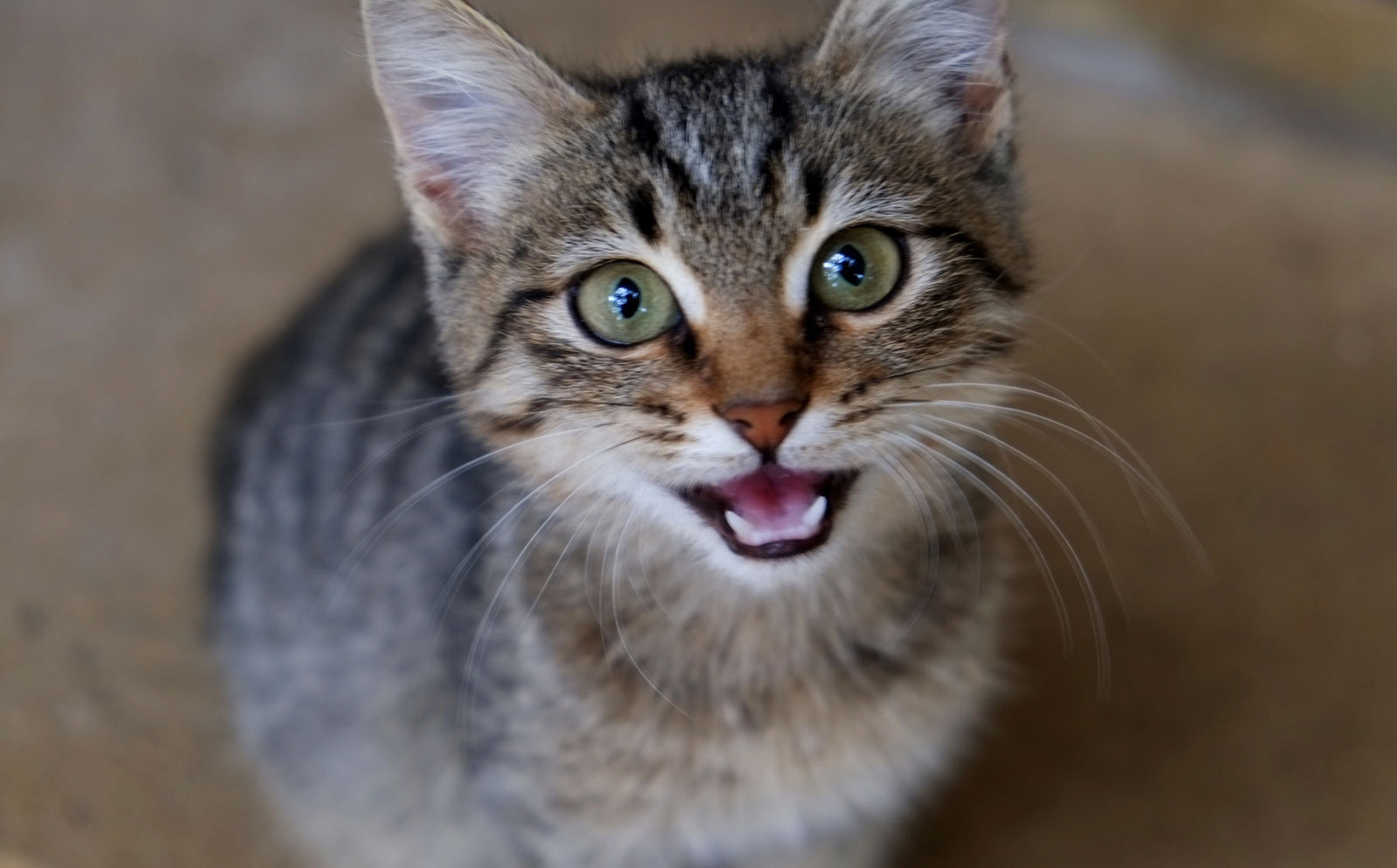
Is your cat meowing constantly? Cats meow for various reasons, from boredom to hunger, and it's their way of communicating with humans. Understanding the different meow sounds can help you better respond, especially if you have a very vocal cat.
Certain breeds, like Siamese cats, are known to be more talkative than others. To address excessive meowing, it's important to understand why your cat is vocalizing. There's usually an underlying reason for their behavior.
Here are some common reasons why cats meow:
- They are unwell: If your cat is disinterested in food or play and meowing excessively, it might indicate an illness. Consider a trip to the vet if this behavior is new.
- Litter box issues: If your cat can't access the litter box, they may meow for help. Ensure the litter box is clean and accessible.
- Hunger: Cats may meow when they are hungry. Avoid feeding them in response to nighttime meowing to discourage this behavior.
- Seeking attention: Ignore excessive meowing and only give attention when your cat is quiet to avoid reinforcing this behavior.
- Greeting you: Cats may meow to greet you when you return home.
- Stress: Changes in their environment, such as a move or new pet, can lead to loud meowing. Provide extra love and attention during such transitions.
- In heat: Female cats in heat can be quite vocal. Spaying or neutering can prevent this behavior.
- Senior cats: Older cats may meow more due to cognitive decline. Use nightlights and consult your vet for medication to help alleviate their anxiety and confusion.
By paying attention to your cat's vocalizations, you can better understand their needs and address any issues causing excessive meowing.
“It looks nicer than any other hooded or open option we considered.”

Categories
Meow from Brooklyn.
Sign up and get early access to product drops, exclusive offers, and the occasional cat meme.
Similar products related to this blog:
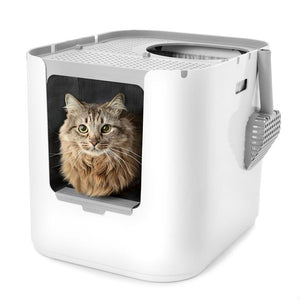
"It looks nicer than any other hooded or open option we considered."

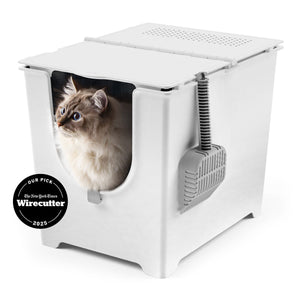
"This litter box keeps everything in, nothing gets out the sides."
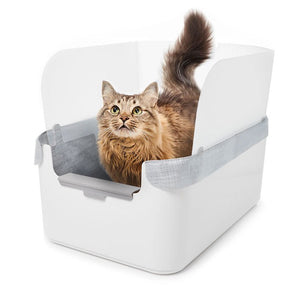
"My beautiful ragdoll cat and I both love the new Modkat Litter tray!"

